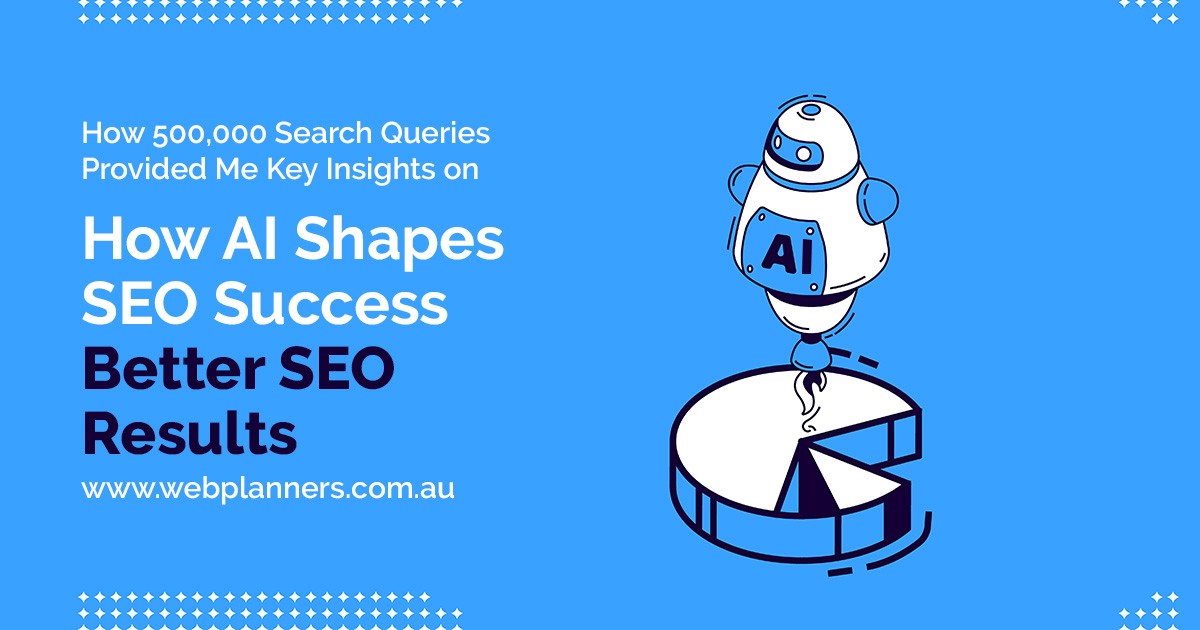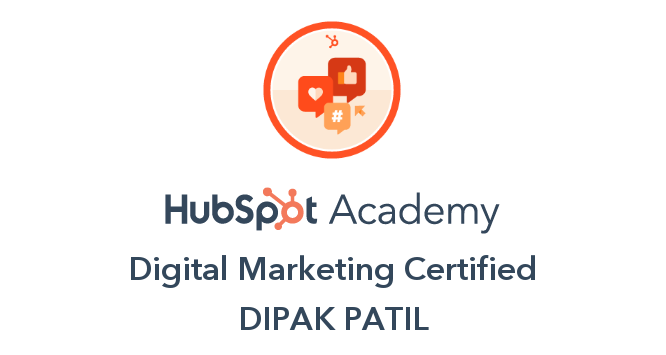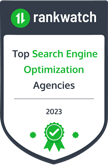Introduction | What 500,000 Searches Reveal About AI’s Role in SEO Success
Imagine being able to see the exact path half a million search queries take, understanding what drives users to one link over another, and finding out what makes one keyword soar in rankings while another remains invisible. In today’s digital marketing landscape, understanding the dynamics of keywords isn’t just about knowing which words are searched most often. It’s about understanding how artificial intelligence (AI) impacts search engine optimization (SEO) and why it matters more now than ever for businesses seeking visibility.
AI now governs not only how search engines process these queries but also the entire user experience that follows.
Did you know that over 80% of digital marketers now rely on AI-driven tools to determine keyword trends and analyse search behaviour?
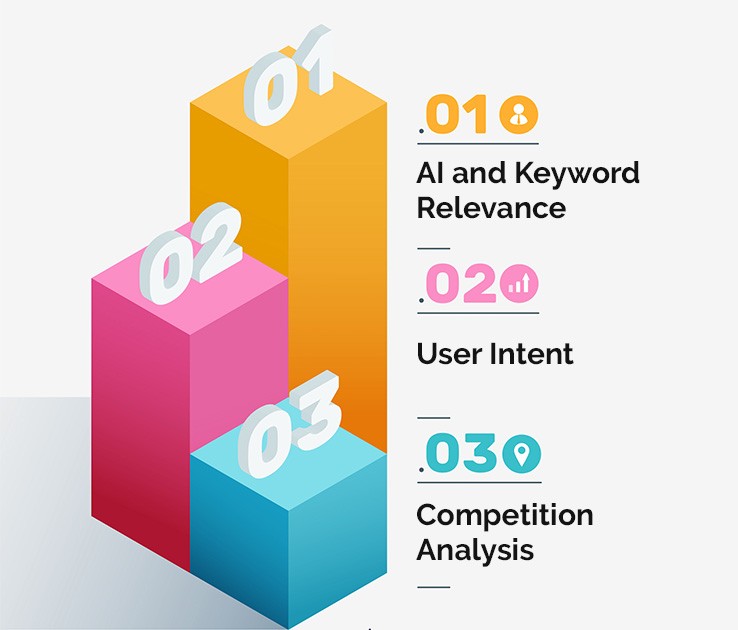
With so much content competing for attention, the challenge is no longer merely picking the right keywords—it’s ensuring they perform. This study of 500,000 search queries uncovers AI's hidden hand in shaping SEO outcomes and reveals a roadmap for achieving better SEO results in today’s AI-driven world.
Quantity vs. Quality – The Keywords Debate Revisited
From our previous article, you might recall the challenge of finding the balance between keyword quantity and quality. In that context, we discussed how many keywords to focus on for effective SEO. This follow-up goes a step further by revealing what happened across 500,000 searches. Here’s what this extensive keyword analysis taught me about how AI-driven insights shape SEO and how AI tools have shifted the importance of specific strategies over others.
Let’s look at three essential pillars of effective SEO within the AI framework: keyword relevance, user intent, and competition level. Here’s a breakdown of how AI drives each and why these findings matter for your strategy.
Ready to boost your SEO with data-driven insights?
Contact Webplanners today and let’s refine your keyword strategy for lasting impact.

AI and Keyword Relevance | What 500K Queries Taught Me
When it comes to relevance, AI algorithms can now interpret keywords far beyond their literal meanings. For example, if a user searches for “contract management assessments,” AI can match them with content that provides in-depth evaluations, strategies, or tools related to contract management—even if those exact words aren’t used verbatim in the content. This shift requires rethinking how we approach keywords altogether.
Key Takeaways on Relevance:
- Semantic Analysis Over Keyword Stuffing: Instead of relying on exact-match keywords, the search engine now detects variations and synonyms, favouring content that naturally addresses the topic rather than mechanically repeating the keyword.
- Greater Contextual Understanding: AI assesses the entire context of a page, scanning for words, phrases, and sentences that provide supporting context to a keyword. For example, "contract management assessments" doesn’t just mean assessments—it implies tools, frameworks, or techniques used in contract evaluation.
What You Can Do:
- Shift to Related Keywords: Use variations of your keywords and consider semantic keywords that capture broader concepts of your main keyword. For instance, a user researching "contract management" might also search for "vendor contracts," "risk assessments," or "contract evaluation tools."

User Intent | AI’s Game-Changer for Matching Content to Queries
After analysing these half a million queries, one of the clearest trends was how AI categorises user intent into informational, transactional, navigational, and commercial types. This categorization is what drives the ranking process in a big way, as search engines seek to provide results that match not just keywords but the specific purpose behind a search.
Key Takeaways on Intent:
- Intent Detection Increases Relevancy: AI now prioritises understanding why a search was made. If a user types “best contract management assessments,” they’re likely seeking comparative information, not necessarily a purchase. Understanding this can shift your approach to content and keywords.
- Higher Conversion with Intent-Driven Keywords: For transactional keywords (e.g., “buy contract management software”), AI will push results that cater specifically to those ready to purchase. This shows that identifying and grouping keywords by intent can enhance your SEO performance across all stages of the buyer’s journey.
What You Can Do:
- Map Keywords to Intent: Categorise your keywords by user intent (informational, transactional, navigational, and commercial) to refine your SEO strategy. For example, "what is contract management" should yield informative content, while "contract management software purchase" should lead users toward product pages.

Competition Analysis | How AI Sifts Through 500K Keywords for Ranking
Understanding keyword competition is essential. Our analysis showed that AI doesn’t simply rank pages with the most backlinks or those optimised to perfection—it’s looking for content that fills unique gaps or offers fresh perspectives on popular topics. With a massive data pool, AI can now assess a keyword’s competition and determine how to rank content that genuinely benefits the user, even if it’s from smaller sites.
Key Takeaways on Competition:
- Content Value Over Domain Authority: AI prioritises relevant, high-value content. In many cases, even smaller websites with specialised, quality content can rank highly if they address a gap.
- Long-Tail Keywords for Niche Dominance: With high competition on common keywords, using long-tail keywords like “in-depth contract management assessments for healthcare” often allows businesses to reach niche audiences more effectively.
What You Can Do:
- Focus on Niche Long-Tail Keywords: Instead of targeting general keywords, dive into niche, long-tail keywords to boost your visibility in areas where your competition may be lower but the audience is highly interested.
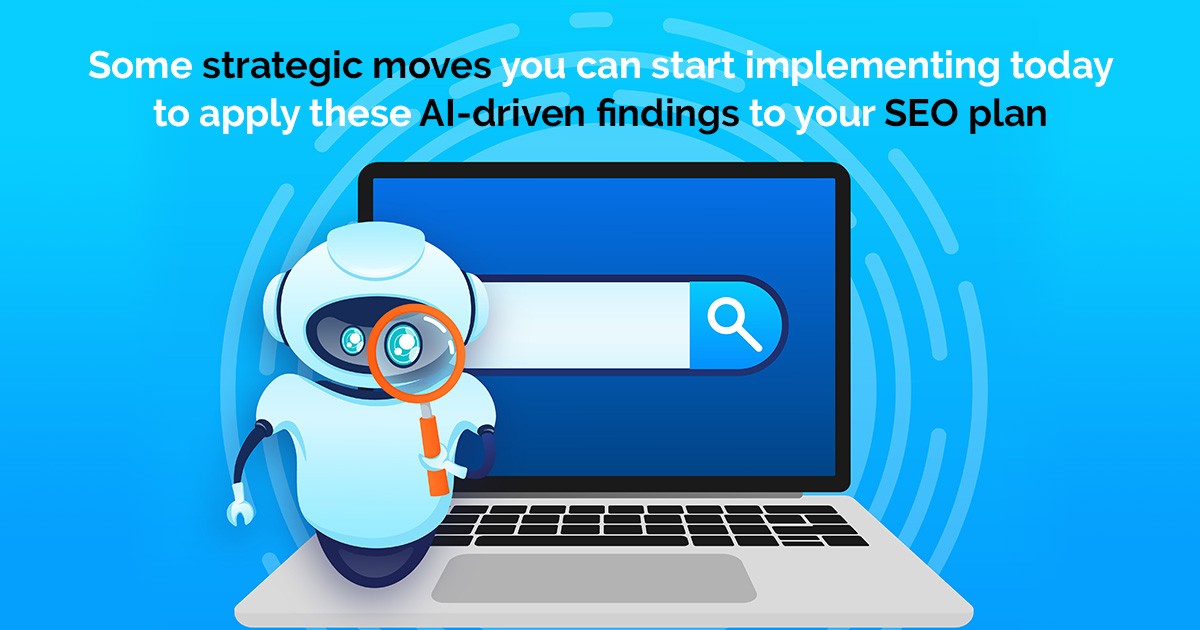
AI’s Role in Driving SEO Success: From Insights to Implementation
AI offers incredible insights, but they’re only valuable if they translate into action. Here are some strategic moves you can start implementing today to apply these AI-driven findings to your SEO plan.
Actionable AI Strategies:
- Regularly Update Content: AI algorithms favour fresh, relevant content, so revisiting and updating your pages to reflect the latest information and trends is essential.
- Use AI-Driven Tools for Deeper Analysis: AI-powered SEO tools like Ahrefs, SEMrush, and SurferSEO can analyse your keywords for user intent, search volume, and competition levels. Rely on these tools to pinpoint opportunities.
- Write for Humans, Format for AI: While keywords are necessary, writing for the human reader with AI-friendly formatting (subheadings, bullet points, concise paragraphs) gives you the best chance of ranking higher.
Example Application: Imagine you’re targeting the keyword “contract management assessments.” Instead of just placing the keyword within your blog, use it as an anchor for related terms like “effective contract evaluation methods,” “tools for contract risk management,” and “compliance assessments.” Then, create high-value, skimmable content with FAQs and quick takeaways to enhance user experience.
Take the first step in optimising your site with AI-powered SEO strategies.
Schedule a free consultation with Webplanners and start building your competitive edge.
Moving Forward with AI Insights: Turning Knowledge into Practice
With AI reshaping SEO at every level, knowing how to adapt to these shifts is key. Businesses can start by refining their approach to content creation based on user intent and by incorporating more nuanced, niche keywords into their SEO strategy.
Getting Started:
- Optimise Existing Content: Analyse your existing content for relevance, quality, and alignment with AI-driven insights on user intent.
Leverage Data for Continuous Improvement: Regularly check your rankings and adjust your strategy as AI algorithms evolve, maintaining an agile approach to SEO.
Conclusion
As we continue to witness AI's influence on SEO, one thing is clear: success in the digital world increasingly requires an understanding of how AI shapes search behaviour and keywords. With half a million queries analysed, the insights gained are invaluable for any business seeking to connect effectively with its audience. By using AI-driven strategies, you can stay competitive in an ever-evolving SEO landscape.
By applying these findings, businesses can not only rank higher but truly meet their audience’s needs at every turn.
Curious about how AI can transform your SEO?
Contact Webplanners today and discover the power of a data-driven keyword strategy!

